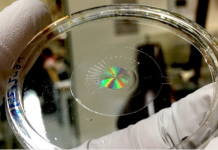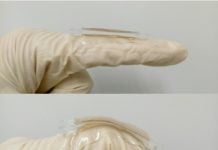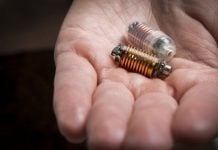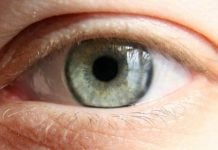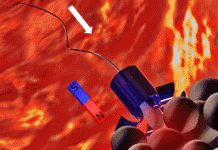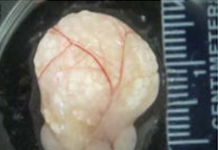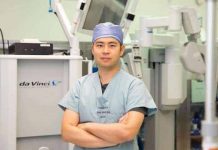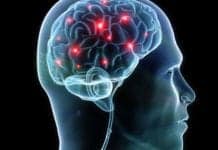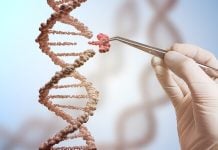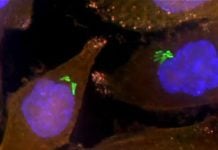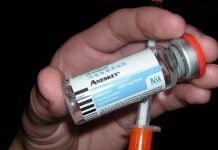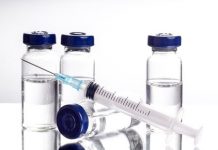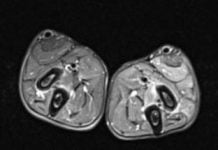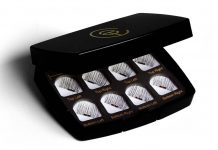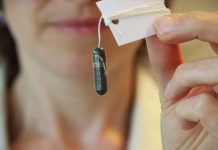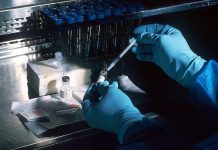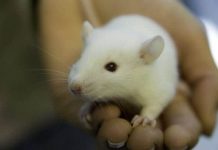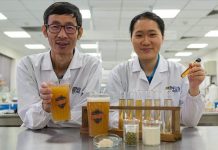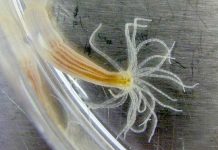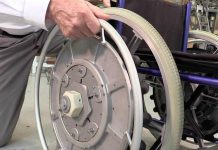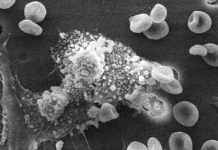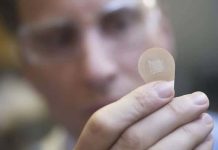Scientists Create Sensor That Can Track What You Eat
Could this technology be the key to easier dieting?
Artificial Eye Corrects Astigmatism, Focuses on Objects Automatically
The nanoengineered eye, which combines a “metalens” with artificial muscle technology, bests its human counterpart in some instances.
Nanogenerator Draws Power From the Body to Charge Devices
Charging the battery of your phone or wearable device may someday be as simple as wiggling your finger...
New Blood Test Aims to Detect Autism Sooner
Scientists from the UK hope the test will not only help to detect autism spectrum disorder sooner, but also to reveal new causes.
Ingredient in McDonald’s Cooking Oil Could Treat Baldness
The chemical in question is used to stop cooking oil from frothing while frying McDonald’s fries.
Nutritious Elixir Helps Women Run and Bike Faster: Study
Physically active women who took a monthly supplement containing essential minerals sliced nearly a minute off a three-mile run – and gained other aerobic...
Could a Nasal Spray Help Treat Gambling Addiction?
For those who suffer from a gambling addiction, the National Institute for Health and Welfare in Finland is working on a treatment.
Ingestible Sensor Offers Inside Peek Into Patients’ Gut Health
Understanding the presence and amount of gases in the stomach and intestines can help scientists better deal with gastrointestinal diseases and other disorders.
Woman Has Baby From Embryo Almost As Old As Her
The embryo was 24-years-old.
Gene Therapy That Treats Rare Blindness Gains FDA Approval
Experts believe the cost for the novel treatment may soar to $1 million or more.
Brain Stimulation Studied as Possible Therapy for Autism
The study used mice to demonstrate how stimulating the cerebellum, a part of the brain that has been suggested as an area of interest in previous studies concerning autism, was able to amend social deficiencies for the animals.
Study Uses Sperm as Cancer-Destroying Missiles
The novel findings offer an exciting glimpse of precision medicine using organic matter to combat cancer.
Artificial Ovaries Could Mean Less Harmful Hormone Therapies for Women
The researchers hope to determine whether the engineered ovaries are successful for women.
New ‘Black Box’ Device Puts Surgeons’ Skills to the Test
A new tracking device may find its way into the operating room and measure – by video and movement – how well a surgeon...
Bright Light Therapy May Have Potential to Treat Bipolar Depression
The study showed that sixty-eight percent of of patients with bipolar depression improved with bright light therapy versus only 22 percent of patients on the placebo box.
Squirrels’ Long Slumber May Hold the Key to Stroke Treatment
Squirrels may be a surprising source of potential life-saving stroke therapy.
Can Unwanted Thoughts Be Prevented?
The study found an interesting insight when looking at levels of GABA within the brain.
Does Heart Surgery in the Afternoon Improve Survival Rates?
Heart surgery performed in the afternoon may give patients a better chance of survival, considering the body's circadian rhythms.
Scientists Discover the Hiding Place of the Brain’s Long-Term Memories
Our memories, it turns out, don’t reside in some abstract space or inside an impenetrable lock-box.
Magic Mushrooms May ‘Reset’ Depressed Patients’ Brains
The researchers note that using psilocybin as a treatment method is a tactic that goes back centuries, and one that may be beneficial for hard-to-treat cases of depression.
Gene Therapy Reverses the Tide of Multiple Sclerosis in Mice
Among the animals studied, up to 80 percent of them went into virtually complete remission of the condition even after experiencing paralysis in their hind limbs.
New Tech Allows Users to Pay With Their Veins
A new biometric payment system reads a customer’s finger veins to complete a purchase.
How Antibiotics Can Augment Cancer Therapy
The groundbreaking discovery reveals that a simple intervention may reverse course and prevent certain bacteria from interfering with drug therapy.
Could Blocking Sweet Taste Receptors Prevent Sinus Infections?
Blocking a person’s sweet taste receptors allows the natural infection-fighting ability of bitter taste receptors to flourish.
Scientists Use CRISPR to Change a Flower’s Color
Scientists have changed the genetic makeup of flowers by using DNA splicing technology, which reveals the vast potential of CRISPR.
Drug Therapy Suppresses Inflammation to Reduce Heart Risk
The researchers tested several different doses of a powerful anti-inflammatory drug on a group of about 10,000 study participants, with the doses ranging from low to medium to high.
New HPV Vaccine Aims to Eradicate Cervical Cancer
The new vaccine, currently under the consideration of Australia’s national health center, would prevent the infection of five additional strains of HPV.
New Sunscreen Reacts to Your DNA For Better Protection
A new type of sunscreen works with a person's DNA to better protect the skin.
Ketamine Could Be the Answer to Treatment-Resistant Depression
Although ketamine use isn't completely understood, a new study suggests it may prove helpful for treating older patients who struggle with depression.
Clinical Trials for Type 1 Diabetes Vaccine Coming Soon
The vaccine centers around previous research that has identified a common type of virus, called an enterovirus, as a cause of type 1 diabetes.
Muscular Dystrophy Reversed in Dogs
A team of international researchers explored the possibility of gene therapy in dogs to reverse and ultimately cure Duchenne muscular dystrophy.
What You Need to Know About Magnetic Eyelashes
The magnetic lash trend is blowing up, which means poor quality knockoffs are abound.
Stevia May Be the Cure for Lyme Disease
Stevia leaf extract was shown to treat the tick-borne disease better than traditional antibiotics.
3 Eye Makeup Products That Will Make Your Life Easier
From magnetic eyelashes to stamp-on eyeliner, these products are the answer to eye makeup application struggles.
Scientists Load Horse GIF Onto Living Cells
Using CRISPR technology, researchers successfully loaded one of the first-ever moving pictures — Eadweard Muybridge’s film of a horse galloping against a white backdrop — into the genome of a living cell.
Researchers Create ‘Pill-on-a-String’ Technique to Better Detect Cancer
The unique technique can rub the esophagus and scrape away cells that scientists can then examine for cancer.
3 Bacteria-Zapping Products for the Home
To truly protect yourself, it’s time to give your cleaning ritual an overall tech upgrade.
Currents Pumped Through Headphones Could Mean Migraine Relief
A group of participants saw a reduction in migraine days of three days per month thanks to the treatment.
Cancer Treatment May Be Revolutionized Through Personalized Vaccines
Vaccines built around a person’s own DNA have proven effective at beating back cancer, two studies show.
While the studies are small and the results,...
iPad Game May Help Prevent Dementia
The interactive game was enjoyable among the study participants, something that is vital to successful cognitive training.
Scientists Engineer Super-Intelligent Mice via Gene Suppression
The researchers believe their findings may hold implications for the treatment of cognitive disorders in human beings.
Scientists Brew Probiotic Beer That’s Actually Good for You
The beer can neutralize toxins and viruses and even help to keep the immune system in check.
Do Sea Anemones Hold the Key to Generating Human Heart Cells?
Sea anemones, although without an actual heart, do contain “heart genes” that researchers have found to be identical to human heart genes.
Humans Have No Limit on Maximum Age: Study
With people now living well past 100 years of age, and advances in medical care ever present, there's no telling what the maximum human age is.
Computer-Based Therapy Helps College Students Drink Less
For college students who routinely go on binge drinking sprees, a new computerized interface may help curb the dangerous behavior.
Researchers from Brown University School...
New Wheelchair Design Eases Mobility Challenges
The gear-driven design utilizes 100 percent of the arm effort, making it much easier to go up slopes and across longer, more challenging distances.
Chronic Pain Can Stop, Study Says
A new animal study shows how chronic pain starts and where it can end.
Scientists Disable Cancer’s Ability to Spread Using Tiny Gold Rods
The new technique showed that using tiny gold rods heated by lasers essentially sawed off the cancer cells’ legs.
Flu Vaccine Patch Kicks Painful Needles to the Curb
The patch can also be stored safely for a year without refrigeration, offering a vital option for health care in the developing world.
Parkinson’s Disease May Not Start With the Brain
The discovery of a protein in the gut provides a previously unrecognized origin of where changes to the same protein in the brain could happen.


